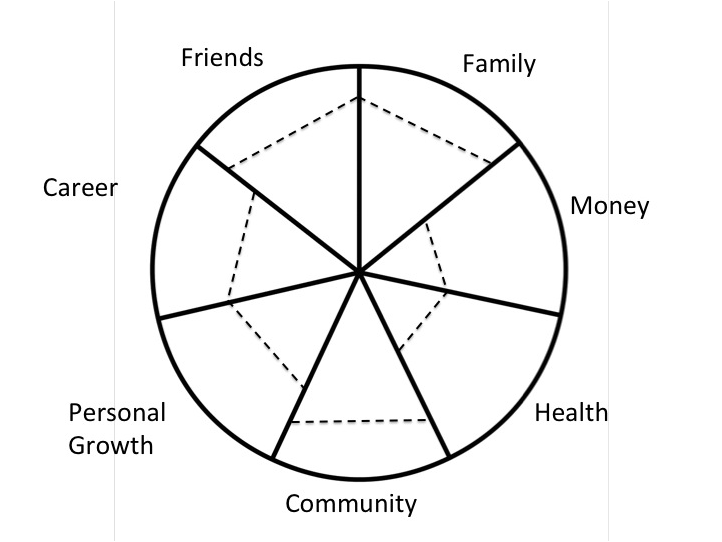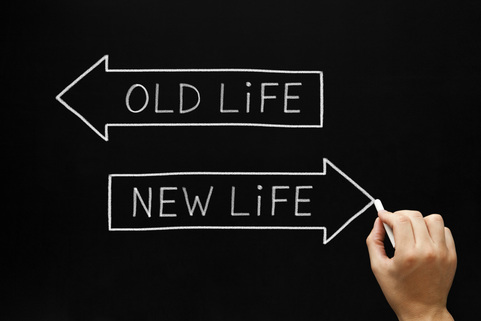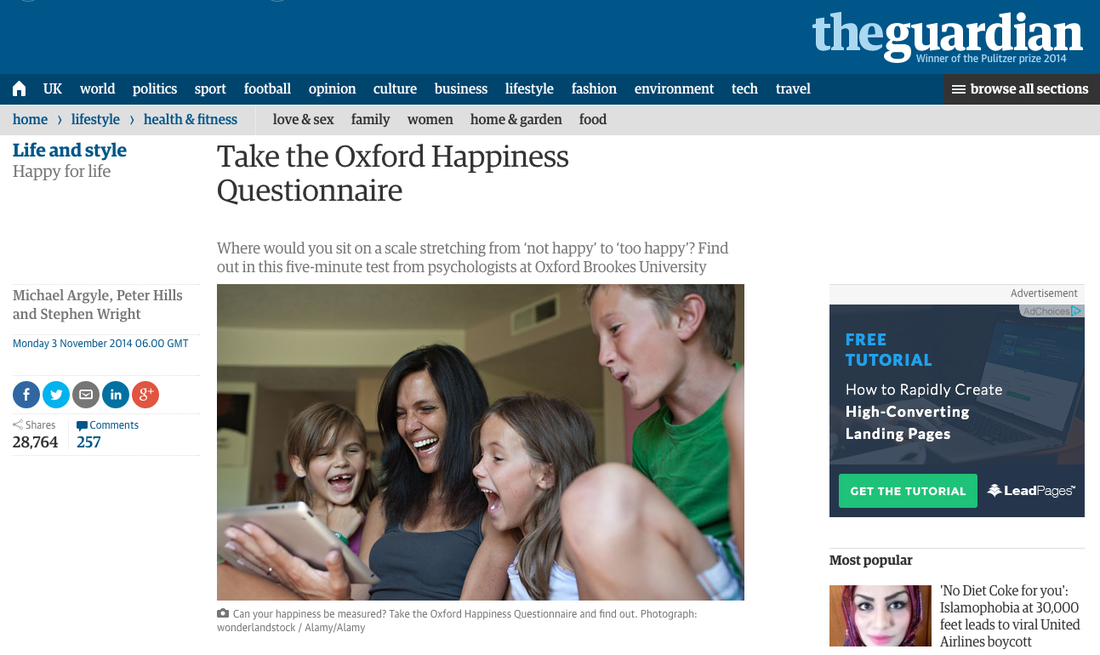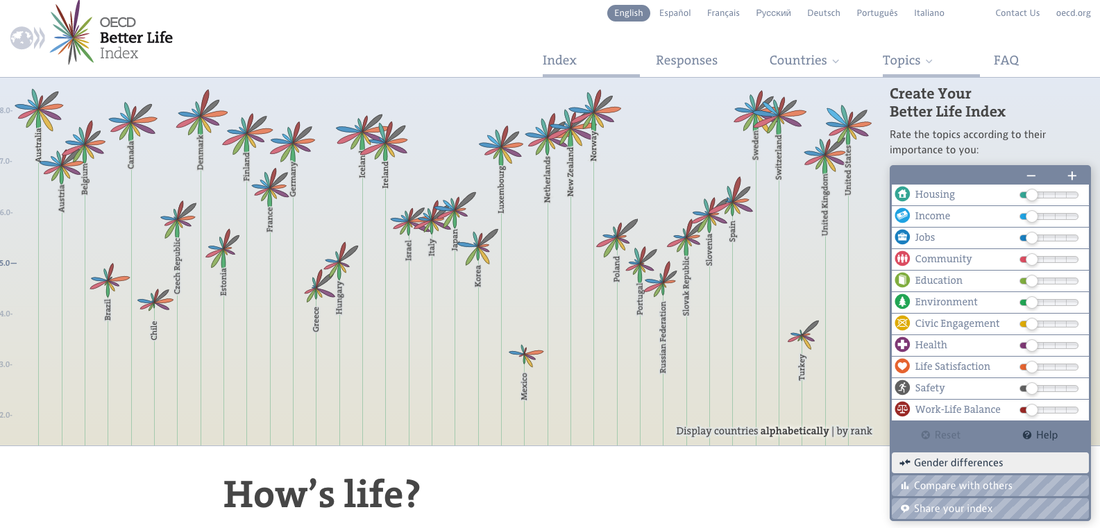Its Going To Be Great Challenge - Step 1: My StocktakeGetting to know yourself. How hard can that be? Well not that easy actually. Not many of us do this well. This is a really really important step. Don't skip it. Because to know where you are going you have to know where you are right now.
Make your unconscious consciousCarl Jung was an early 20th century psychotherapist and psychiatrist who created the field of analytical psychology. He said . . .
"Until you make the unconscious conscious, it will direct your life and you will call it fate": Carl Jung And this is what this step is all about. Getting your feelings out in the open as first step to fulfilling your deep innate potential.
|
Why a stocktake is important . . .
Think of a time when something great happened to you. You won a prize, gave a speech for the first time in front of a room full of people, entered and competed in a running event. These are just examples – think of a time in your life when you underwent change for the positive.
My example was running a half marathon. I was reasonably unfit, had a sedentary job behind a computer and had never run more than about 5km in my life. So after talking to some friends (ok some beer was involved) I decided to enter myself into an upcoming race. It was in 8 weeks and involved running 21km. Gulp! I set myself a training schedule, roped a friend in to do it with me and lo and behold in 8 weeks time I crossed the finish line. Not a particularly stupendous time – definitely in the last 20% of the field.
But what an amazing feeling! In eight weeks time I had gone from being a pretty unfit person to being capable of running 21km without stopping (shuffling still counts as running in my book). And that was the ultimate buzz. The change I had undergone was dramatic. I remembered how I was and how unfit I felt. And most of all I remembered back 8 weeks ago to this person who had never contemplated doing a race like this and probably hadn’t imagined they were capable.
So it wasn’t really the run that made me feel so amazing. It was the difference in how I felt and the change I had undergone. And I could remember that because, hey, 8 weeks wasn’t that long ago. How I had been feeling and living my life back then became my yardstick – a way of gauging how far I had progressed and what changes I had made in my life.
And this is my challenge to you. Take time right now to stocktake your life and how you are living it. Your yardstick for the future new you!
My example was running a half marathon. I was reasonably unfit, had a sedentary job behind a computer and had never run more than about 5km in my life. So after talking to some friends (ok some beer was involved) I decided to enter myself into an upcoming race. It was in 8 weeks and involved running 21km. Gulp! I set myself a training schedule, roped a friend in to do it with me and lo and behold in 8 weeks time I crossed the finish line. Not a particularly stupendous time – definitely in the last 20% of the field.
But what an amazing feeling! In eight weeks time I had gone from being a pretty unfit person to being capable of running 21km without stopping (shuffling still counts as running in my book). And that was the ultimate buzz. The change I had undergone was dramatic. I remembered how I was and how unfit I felt. And most of all I remembered back 8 weeks ago to this person who had never contemplated doing a race like this and probably hadn’t imagined they were capable.
So it wasn’t really the run that made me feel so amazing. It was the difference in how I felt and the change I had undergone. And I could remember that because, hey, 8 weeks wasn’t that long ago. How I had been feeling and living my life back then became my yardstick – a way of gauging how far I had progressed and what changes I had made in my life.
And this is my challenge to you. Take time right now to stocktake your life and how you are living it. Your yardstick for the future new you!
Undertaking your stocktake
“Observing yourself is the necessary starting point for any real change.” Chalmers Brothers
The Miriam-Webster dictionary defines stocktaking as "the activity or process of thinking about a problem or situation in order to decide what to do"
So this exercise is all about developing your own personal stocktake. Defining or describing how you are feeling now – to be used as a way of comparing that feeling to the way you feel in the future.
Some of us are detailed and systematic in our thinking. Others of us prefer to express themselves in a more abstract way. So then rather than prescribe a single method of gauging your happiness I am going to make some suggestions for different options. I am hoping that one will resonate with you.
So this exercise is all about developing your own personal stocktake. Defining or describing how you are feeling now – to be used as a way of comparing that feeling to the way you feel in the future.
Some of us are detailed and systematic in our thinking. Others of us prefer to express themselves in a more abstract way. So then rather than prescribe a single method of gauging your happiness I am going to make some suggestions for different options. I am hoping that one will resonate with you.
1: The Wheel option
The "happiness" wheel is a common and well used method of identifying and rating your happiness.
The wheel is divided into different areas or categories that are important to you. There is a scoring system where you simply think about and rate your satisfaction levels out of 10, where 1 is closest to the centre of the circle and 10 is at the edge of the circle.
The wheel is divided into different areas or categories that are important to you. There is a scoring system where you simply think about and rate your satisfaction levels out of 10, where 1 is closest to the centre of the circle and 10 is at the edge of the circle.
Step 1
Draw a circle on a piece of paper. Trace around the top of a coffee cup. Now divide the circle into quadrants. Each quadrant will represent a part of your life right now (see next step).
Draw a circle on a piece of paper. Trace around the top of a coffee cup. Now divide the circle into quadrants. Each quadrant will represent a part of your life right now (see next step).
Step 2
Now comes the time to think about different parts of your life. I suggest thinking about roles you may have. For instance, I have a career, I am the "bread-winner" for my family, am a father and husband and have many friends. I also have a role to look after myself - my health and aspirations for my own personal growth.
These are suggestions only. You will have parts of your life that are important to you, such as spirituality or religion. The trick is to balance getting the roles right so that they mean something to you with ensuring you don’t have too many.
Keep it simple to start with. Mark each quadrant with the role or part of your life you have decided is important to you.
Now comes the time to think about different parts of your life. I suggest thinking about roles you may have. For instance, I have a career, I am the "bread-winner" for my family, am a father and husband and have many friends. I also have a role to look after myself - my health and aspirations for my own personal growth.
These are suggestions only. You will have parts of your life that are important to you, such as spirituality or religion. The trick is to balance getting the roles right so that they mean something to you with ensuring you don’t have too many.
Keep it simple to start with. Mark each quadrant with the role or part of your life you have decided is important to you.
Step 3
Now the interesting part. You will to need rate yourself as to how happy or satisfied you are in each part of your life.
To do this – mark yourself as close as possible to the centre of the circle if you are completely unsatisfied or unhappy with your particular role. Mark yourself towards the middle if you think things are going pretty much ok. And at the outer edge of the circle means you are outstandingly happy with that particular part of your life.
When I first started to do this, I took forever. Was it a four or a five for money. Did I have a good enough relationship with my friends to warrant an eight – or was a seven more realistic? My advice is to be instinctive. Shut your eyes and make a “call” within 5 seconds. Your gut instinct is incredibly reliable and very honest. Go with it.
Now the interesting part. You will to need rate yourself as to how happy or satisfied you are in each part of your life.
To do this – mark yourself as close as possible to the centre of the circle if you are completely unsatisfied or unhappy with your particular role. Mark yourself towards the middle if you think things are going pretty much ok. And at the outer edge of the circle means you are outstandingly happy with that particular part of your life.
When I first started to do this, I took forever. Was it a four or a five for money. Did I have a good enough relationship with my friends to warrant an eight – or was a seven more realistic? My advice is to be instinctive. Shut your eyes and make a “call” within 5 seconds. Your gut instinct is incredibly reliable and very honest. Go with it.
2: The "Me" Board option
If numbers and ratings don’t appeal – this could be for you. The “me” board is like a vision board in reverse. Its meant to characterize your life and how you feel – right now.
|
Get hold of a big piece of card. A2 size is 42cm by 60 cm - or go bigger if you can.
Now get a pile of magazines and newspapers. It doesn't matter so much what they are, just make sure you have a good sample of different types. The aim of this exercise is to build a poster which points to how you are feeling right now. It will suit those of you who are creative - or who just can't get their head around stats and questionnaires. You need to cut out and paste pictures, words, headlines or art that talks to your present state of mind. Be intuitive - if something you see feels right about how you are - don't think, get cutting. Remember this isn't about who you want to be (that comes later). This is about who you are NOW. |
3: The Survey option
There are many surveys and questionnaires on the web which attempt to provide you a happiness "score". Some are great so take your time and find one that resonates.
|
The Oxford Happiness Questionnaire attempts to measure happiness. It was developed by Michael Argyle and Peter Hills of Oxford Brookes University, and originally published in 2002. If are interested in the scholarly paper you will get a lot of out of understanding how the survey was developed. If however you are after a more user friendly version, the UK Guardian has produced one that you can answer and immediately generate your score.
|
|
Here's something left field. Take a look at the OECD Better Life Index. This is a really interesting site which looks at quality of life across OECD countries. You are prompted to rate topics such as housing, income, the environment and health according to how important these are to you. You can then compare with what others around the world have said. While its not a personal happiness questionnaire it does raise make you think about the community you live in and how its perceptions of a "better life" differ from others.
|
Which Option Did You Choose . . . ?
It doesn't really matter which option you chose, or whether you found a completely different approach that worked better for you:
- Don't skip this step: Its tempting I know to jump to the action side of things. But until you really understand how you are feeling now, designing a future you risks missing something important.
- Be honest and be private: This isn't about anyone else but you and so that allows you to be completely and utterly honest. Nobody has a right to see what you are saying about yourself, but that doesn't mean you can't choose to share. And if that's the case, choose someone you think will support and applaud - you need a cheerleader not a critic right now.
- Keep a copy: The point about a stocktake is that its just that - a point you can refer to on your journey. Keep the wheel, the me poster or a screen print of the questionnaire somewhere safe (and private).





